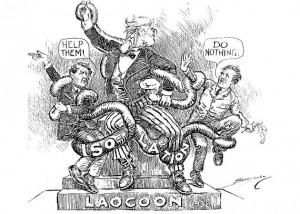Reflection Post: It All Connects Now!
If anything the video project has taught me it was the importance of actual implementation of all the marketing techniques and analysis into real life projects. True that this is only an assignment, but it is as close to a marketing report as it can get. Of course there are still many differences between what we are doing in class and how actual consulting firms do their write ups, it is close enough to say this experience is quite close to what we can expect to do in the future (if we are going to marketing).
It is one thing learning all the concepts and theories coming up with papers and another actually using these theories into real life situations. Definitely for an active learner like myself feel I’ve gained much more from the implementation of theories than memorization. It really opened my eyes to see how all the knowledge in possession can be used in these real life situations, and the brilliance and diligence of our group members made me realize the importance of team work. I was not in charge of making nor planning the video, and my contribution was solely writing out and recording down certain parts and final editing. The final work was quite brilliant, and I can’t express my gratitude enough for having such reliable team mates.
Towards the end of this course and this blog post, I would just like to express how the past 3 months changed my views on marketing. I used to think marketing would be quite intuitive, common-sense to most on how the technique works and all that. However I was proven wrong, as it seemed a lot more complicated than I thought. The final project just further serves to prove that, how convoluted a real life report can actually get.


















